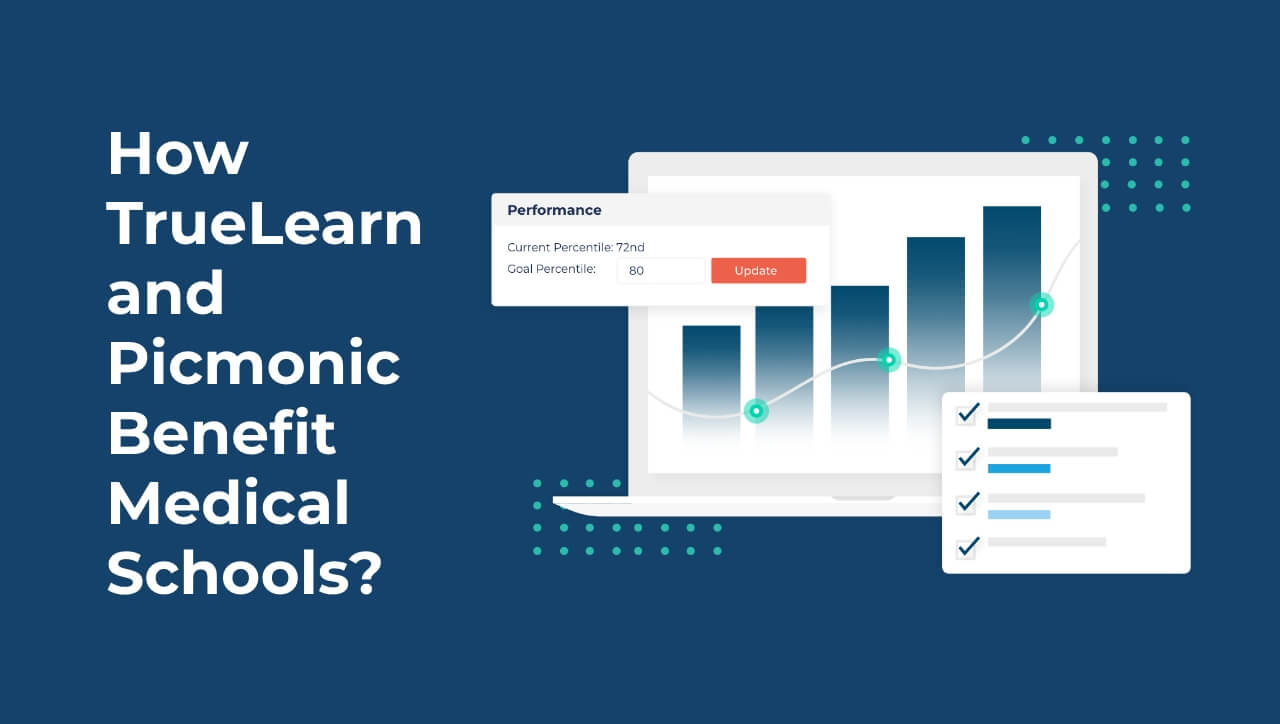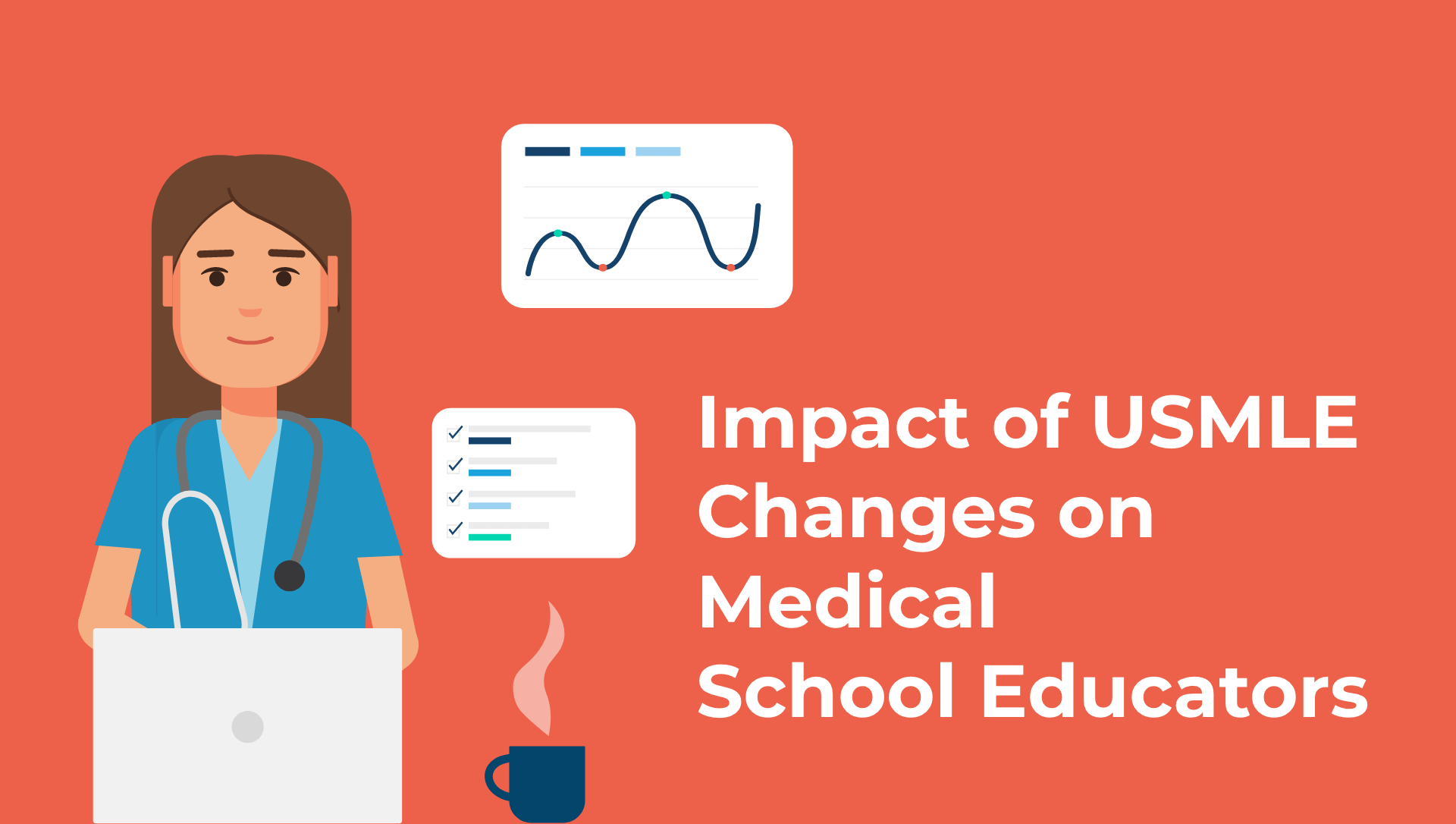Proactively Reduce Remediation in Medical School with Proven Strategies
Remediation in medical education is the process of supporting medical school students who struggle to meet required competencies by helping them address gaps and improve performance. It provides structured interventions to target specific areas of weakness and guide students back on track. However, remediation can be time- and resource-intensive, often requiring medical school educators to reteach material, develop individualized learning plans, and reassess progress—all of which can disrupt the flow of the broader curriculum.
While remediation plays an important role in supporting student success, minimizing its frequency is a key objective for medical school programs aiming to enhance teaching efficiency and overall outcomes.
Active learning tools are recognized as an effective approach to address this challenge.1 By fostering deeper engagement and continuous application of knowledge, active learning strategies help medical school students retain material more effectively and reduce the likelihood of falling behind. Incorporating these tools into medical education strengthens learning outcomes and reduces reliance on formal remediation processes.
In this blog, we explore:
- How common is remediation in medical schools
- The costs and impact on medical school educators
- Proactive strategies programs can use to reduce remediation through early intervention, continuous assessment, and targeted support for student learning
A closer look at prevalence data provides essential context for why proactive strategies have become increasingly important for medical school programs.
How Common Is Remediation?
Despite rigorous selection processes and high academic standards, remediation has remained a consistent part of medical education. Earlier estimates placed the prevalence of remediation at around 3 percent of medical school students,2 but more recent data suggest that the rate may be significantly higher, with approximately 10 percent of medical school students experiencing academic failure requiring remediation during their training.3
This upward trend underscores that remediation is not an isolated issue but a widespread and evolving challenge across medical school programs. While remediation plays a critical role in ensuring student competency, its impact on medical school educators is significant.
Each remediation case requires personalized instruction, targeted support, and ongoing assessments, all of which place considerable demands on faculty time and institutional resources.4 These challenges highlight the importance of proactive strategies that help prevent students from falling behind, allowing medical school programs to maintain teaching efficiency and focus on delivering a high-quality curriculum.
Recognizing the scope of remediation is only the first step; it is equally important to understand the broader costs and pressures it creates within medical education environments.
In the webinar below we will discuss how utilization of USMLE-style practice questions across the medical school curriculum benefits both students and faculty. Watch and learn best practices for students and curriculum integration, as well as how to interpret and leverage the data to guide learning, improve USMLE performance, and inform curricular decisions. Learn more about how to elevate USMLE performance through data analytics in this webinar presented by Dr. Christopher Carrubba, MD, MBA.
What Is the Cost of Remediation?
Although remediation is vital for supporting student success, its associated costs are substantial. Each case requires medical school educators to dedicate additional time to planning, one-on-one instruction, and the development of customized learning resources. Beyond increasing workload, these responsibilities often disrupt the structured flow of academic programs, requiring faculty to balance individualized support with broader teaching commitments.
Remediation also introduces emotional and psychological challenges for medical school students. The heightened stress and anxiety that frequently accompany remediation can affect overall classroom morale and engagement, requiring further faculty attention to maintain a positive learning environment.
Remediation often requires significantly more time, expertise, and resources than anticipated. In some cases, addressing challenges such as inefficiency and organizational difficulties has been shown to demand as much as 25 to 75 hours of faculty time per student.
Effective remediation is not something that can be managed informally or on a voluntary basis; it relies on the commitment of highly experienced faculty who are properly supported and compensated by their institutions. This highlights the substantial investment needed and underscores the importance of strong institutional backing to sustain successful remediation efforts.²
Given these significant impacts, proactive strategies to reduce the occurrence of remediation are essential for optimizing faculty time and improving overall program efficiency.
How Programs Can Proactively Reduce Remediation
Minimizing remediation requires a proactive, data-driven approach that engages medical school students early and supports their progress consistently. Programs that integrate continuous support mechanisms and prioritize active engagement are better equipped to reduce remediation rates while promoting stronger academic outcomes.
Active learning is widely recognized as an effective approach to enhance understanding and promote long-term retention. When medical school students actively apply knowledge, rather than passively receive information, they develop critical thinking skills that are essential for sustained success.
One proven method is embedding USMLE®-style practice questions into lectures and coursework, enabling students to apply concepts in clinical contexts and reinforce understanding in real time.
To further support learning, programs can adopt strategies such as retrieval practice and spaced repetition. Retrieval practice encourages students to recall information regularly, which strengthens memory retention and improves the ability to apply knowledge under pressure. Spaced repetition reinforces key concepts at optimal intervals, helping students build mastery over time and reducing the likelihood of last-minute cramming. Incorporating formative quizzing throughout the curriculum also provides continuous feedback, allowing both students and medical school educators to monitor progress and address gaps proactively.
Equally important is the use of continuous performance monitoring. Low-stakes assessments offer real-time insights into student performance, making it possible to identify challenges early and respond with targeted interventions. Brief reteaching sessions, supplemental assignments, or guided study plans can often address learning gaps before formal remediation becomes necessary, maintaining course momentum and optimizing faculty time.
By creating a learning environment that emphasizes active participation, regular feedback, and timely intervention, medical school programs can take meaningful steps to minimize remediation and foster sustained academic success.
Enhance Teaching with USMLE®-Style Practice Questions
Integrating USMLE®-style practice questions into the medical curriculum delivers benefits for both students and faculty. Educators can use these questions to enrich didactic sessions, foster active learning, and help students strengthen retention and recall. As highlighted in the webinar, this approach enables faculty to guide students through complex concepts more efficiently—expanding coverage across the curriculum.
In this webinar, discover how to:
- Leverage USMLE®-style questions as an active teaching and learning tool
- Drive stronger exam readiness and improved USMLE® performance
- Strengthen students’ test-taking strategies for exam-day success

Meet the Presenter:
Dr. Christopher Carrubba, MD
USMLE® Medical Director at TrueLearn
Dr. Christopher Carrubba is an experienced medical education executive who has spent over 12 years tutoring medical school students preparing for USMLE® and COMLEX exams. He is experienced in writing board-style questions and developing content. While completing his residency in Internal Medicine, he was hired to the position of Medical Director at MedSchool Tutors, where he completed over 5,000 hours of personalized tutoring, hired and trained new tutors, and established consulting relationships with medical schools and content providers. In 2017, he began tutoring medical students and consulting with medical schools on curriculum improvement, test-taking strategies, and implementation of eLearning. Dr. Carrubba oversees USMLE® item and content development for the USMLE® and Shelf SmartBanks.
How TrueLearn Helps Educators Integrate Active Learning and Identify At-Risk Students Early
TrueLearn equips medical school programs with tools designed to proactively reduce remediation by reinforcing learning, monitoring progress continuously, and identifying at-risk students early. Through benchmark testing, adaptive quizzing, and powerful performance analytics, educators can keep students engaged with high-yield content and address knowledge gaps before they require formal remediation.
For programs aiming to implement a structured, data-driven approach to early intervention and continuous assessment, TrueLearn’s learning platform and predictive analytics provide a proven framework to strengthen student outcomes and minimize remediation. Whether integrated into a spiral curriculum or used to enhance an existing program, these tools deliver meaningful, real-time performance data that enable faculty to maintain instructional momentum and optimize student success.
Customized Curriculum Mapping
TrueLearn’s medical education experts map high-quality USMLE®-style questions and multimedia learning resources directly to each program’s curriculum. Customized quizzing tools ensure that students engage with precisely the right material at the right time—supporting targeted learning that helps prevent gaps from developing.
Structured benchmark assessments give medical school educators real-time insights into student progress, making it possible to detect and address weak areas well before students face high-stakes exams. By embedding science-backed active learning resources and assessment tools, TrueLearn helps reduce the likelihood of remediation by strengthening understanding early and often.
Comprehensive, Actionable Insights
As students engage with board-style questions, videos, and low-stakes assessments, TrueLearn’s analytics platform surfaces critical data points to program leaders. Longitudinal tracking enables monitoring of individual, cohort, and program-wide performance across content areas—allowing medical schools to intervene proactively when students show early signs of struggle.
These insights empower educators to identify at-risk students sooner, tailor interventions to meet specific needs, and uncover curricular gaps that may contribute to underperformance. By optimizing content mastery and aligning closely with learning objectives, programs can reduce remediation rates and build a stronger foundation for student success.
Why This Matters for Medical Schools
By leveraging TrueLearn’s data-driven approach, medical school programs can reinforce student learning through structured, continuous engagement with high-yield content. Faculty benefit from analytics that provide actionable insights for curriculum refinement and targeted student support. With a focus on early detection, performance tracking, and adaptive learning, TrueLearn empowers medical schools to reduce remediation rates while enhancing curriculum effectiveness and exam readiness.
Remediation remains an essential component of medical education, providing crucial support for medical school students who encounter academic challenges. However, the substantial demands it places on medical school educators and institutional resources highlight the need for proactive strategies that prevent academic difficulties from escalating. Active learning tools and continuous performance monitoring have proven effective in strengthening student engagement, identifying challenges early, and facilitating timely interventions.
By adopting these strategies, medical school programs can improve teaching effectiveness, reduce the incidence of remediation, and maintain a focused, efficient learning environment that supports both educators and students.
Explore an institutional partnership or request a demonstration of TrueLearn.
Get Started1. McCoy L, Pettit RK, Kellar C, Morgan C. Tracking active learning in the medical school curriculum: A learning-centered approach. J Med Educ Curric Dev. 2018;5:2382120518765135. doi:10.1177/2382120518765135
2. Guerrasio J, Garrity MJ, Aagaard EM. Learner deficits and academic outcomes of medical students, residents, fellows, and attending physicians referred to a remediation program, 2006-2012. Acad Med. 2014;89(2):352-358. doi:10.1097/ACM.0000000000000122
3. Bennion LD, Durning SJ, LaRochelle J, et al. Untying the Gordian knot: remediation problems in medical schools that need remediation. BMC Med Educ. 2018;18(1):120. doi:10.1186/s12909-018-1219-x
4. Chou CL, Kalet A, Costa MJ, Cleland J, Winston K. Guidelines: The dos, don’ts and don’t knows of remediation in medical education. Perspect Med Educ. 2019;8(6):322-338. doi:10.1007/s40037-019-00544-5
*The USMLE® and National Board of Medical Examiners® (NBME®) subject exams are trademarks of the National Board of Medical Examiners.
This content is not endorsed or approved by NBME.


